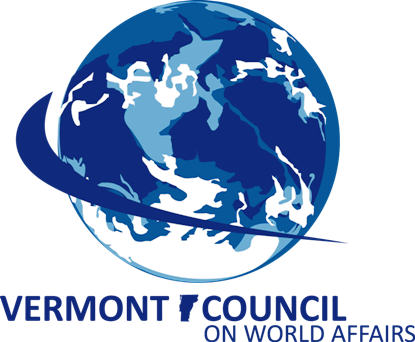Elections 2020 Initiative: Molly Gray
Assistant Attorney General in the criminal division of the Vermont Attorney General's Office, Molly Gray of Burlington, VT will be running in the Democratic primaries for Lieutenant Governor of Vermont this August 11, 2020.
2020 Elections Initiative
The VCWA, an independent, non-partisan, and apolitical non-profit, is working to raise awareness, education, and voter participation in the upcoming primaries through our 2020 Elections Initiative. The views and opinions expressed are those of the candidate and do not necessarily reflect the VCWA’s position, nor is this initiative an endorsement for any candidate
As an organization we want to encourage citizens of all ages and backgrounds to make their voices heard by voting in the August 11th primaries. As a result, we asked Governor and Lieutenant Governor candidates four interview questions relating to leadership style, platform, and their vision for Vermont. Our objective is to help future voters feel confident and secure in the votes they cast. The questions we selected will provide voters with a well rounded understanding of each candidate.
Molly Gray
Running for Lieutenant Governor
Molly Gray
Democrat
How has a failure, or apparent failure, set you up for later success? Do you have a“favorite failure”?
I was born and raised on a farm in Newbury, I cross-country ski raced for the University of Vermont, and have spent my career in service to Vermont, as an advocate for human rights and as an attorney. As every Vermont farmer knows, you can’t succeed without embracing a lack of predictability and a regular amount of failure. As any competitive ski racer knows, athletics and competition mean training hard, doing one's best and facing defeat. Public servants, advocates and attorneys know that the road to a better future is long, winding and riddled with hurdles. As Lieutenant Governor, I will continue as I have throughout my life to face adversity, failure or challenges with adaptation, learning, reflection, and resilience.
What strategies have you used to respond to diversity and equity challenges in the past? How will you apply these strategies to engage with the Black Lives Matter movement in Vermont?
I have spent my career in human rights as an adjunct professor and human rights monitor, in humanitarian response with the International Committee of the Red Cross, and in promoting the rule of law as an Assistant Attorney General. Through this work I have learned and carried with me three guiding principles: First, equity begins with an assessment of basic human needs and a commitment to addressing human need with complete impartiality and neutrality. Second, the same voices yield the same results. If we want to address racism and inequity and work for a more just Vermont, we need to put communities, families and those most impacted by racial, economic, social or environmental injustice at the forefront. Third, leadership is as much about listening as it is about speaking. Now is the time to listen, learn, support and act.
In the last five years, what new belief, behavior, or habit has most improved your life? How will you apply this to strengthen your vision as the Lieutenant Governor or Governor of Vermont?
Eleanor Roosevelt once rhetorically asked and answered, “where does human rights begin? It begins right here in our communities at home.” In recent years, I’ve come to understand through talking to Vermonters and working in communities across our state that addressing inequity and injustice begins with understanding how it exists right here in Vermont within our own communities, institutions and systems. I have undertaken this work not only as an Assistant Attorney General where I’ve witnessed, first hand, the intersection of poverty, mental health and our criminal justice system, but also as someone raised in rural Vermont and as a product of Vermont’s education system. I recognize from my own lived experience that our greatest opportunities arise from our greatest challenges right here at home.
VCWA’s motto is, "Bringing Vermont to the world and the world to Vermont". What do you believe Vermont’s primary role is in engaging in an interconnected world? What can Vermont contribute to the world that other states or countries cannot?
I’ve long believed that Vermont’s values can save our nation. We’ve historically punched above our weight in Congress. Senator Leahy has infused Vermont’s values of humanity, fairness, accountability and caring for those less fortunate into U.S. foreign assistance. Senator George Aiken famously reflected that the “US could do more with food than bullets.” In this moment of global crisis, justifiable social unrest, and mounting divisiveness, we need Vermont’s tradition of promoting human rights, international engagement as well as respect for the rule of law to prevail. Vermont must continue to lead by example, both at the statewide and federal level. Now, more than ever, we need to elect leaders in Vermont who share these values and recognize our common humanity.

